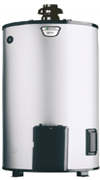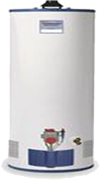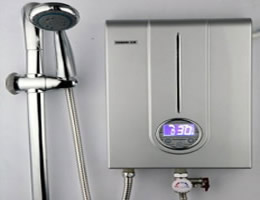24 Hour Service Hot Water Heater
A water heater leak may seem like just a minor nuisance, but it can quickly turn into a big problem. Even a small amount of water will cause damage to your floors, sub-floors and walls. Keep in mind that water leaking may be a symptom of a much larger problem. In extreme cases, we Fix Water Leaking a catastrophic and complete water failure can cause a significant flood that could lead to hefty repair bills and damaged personal property. Water leaking can also be a health concern. Damp and wet areas can sprout mold and mildew that can cause allergic reactions and asthma in some individuals. Some mold spores are toxic and can lead to serious health problems.

Not every small puddle of water found at the base of a heater is necessarily due to a leak and also we fix Water Heater Leaking from Top. A heater and the pipes around it, plus the other appliances typically found nearby, can form condensation, which can accumulate and drip to the floor; especially in a basement or during damp weather.
Furnace drain lines, water softener discharge lines and other plumbing can also be the cause of the leak. If a small amount of water is noticed under or near a water heater for the first time, wipe it up and try to determine its source through simple observation. Closely inspect the heater and its plumbing fittings for obvious signs of water leakage. If none are found, inspect other nearby possible sources. Water faithfully obeys the laws of gravity, so pay particular attention to anything directly overhead, especially water pipes in Dallas, TX.
If still nothing is found, lay down some paper towels over the area that was damp and come back to check on it every few hours. If, after a day or so, the problem does not re-appear, it’s likely nothing to be concerned about. If, however, water does show up again and no other source for it can be readily identified, the water heater leaking is the likely cause, and the inspection steps that follow should be carried out.
Most heaters will a valve located above the water (by code they are required to be here) that will shut off the water supply and Hot Water System Leaking. This valve will either have a handle that you have to pull down, or a gate valve (essentially a dial) that you will have to turn clockwise to close. Before closing the valve, make sure you can get to it safely without coming in contact with any water. If you have a large, serious leak and cannot reach the water shut-off valve safely then you should find the main shut-off valve for the house and close it to stop the water supply to your water heater. Shutting the water off should slow and may even stop the leak depending on where it is coming from.
It’s hardly surprising that tank water heaters have remained the most popular type of water heater throughout the country. They are not only powerful, sturdy and reliable, but they are also cost–effective. We can find one that works for your home or repair yours at a moment’s notice.




